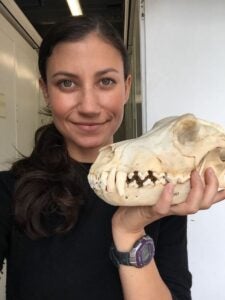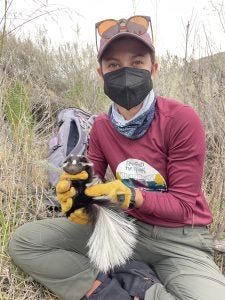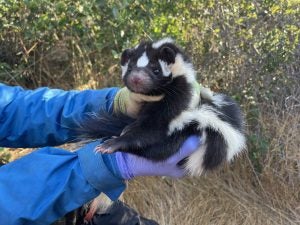
Research Interests:
In general, I am interested in the application of genetic and genomic tools in wildlife research to contribute to conservation and management efforts. In the early stages of my Ph.D. I conducted a study using noninvasive fecal DNA to estimate black bear density in the Lake Tahoe Basin. This research highlighted the importance of developing noninvasive methods to study bears at the interface of urban and wild landscapes. More recently, my focus has shifted toward using genomic methods to understand how gnomes are influenced by evolutionary history. I am particularly interested in this application of genomics as it allows researchers to bridge the gap between a population’s history and it’s present-day characteristics, which can be an important component of developing an effective conservation strategy.
After attending community college in Los Angeles, I received my B.S. in Animal Biology from UC Davis in 2018. During my undergraduate years, I was an intern in the Mammalian Ecology and Conservation Unit (MECU) where I completed a practicum project on identifying genetic subdivisions among ecoregional coyote populations in the Sierra Nevada. I enjoyed this research so much that I decided to stay for a PhD!
Current Research:
I am currently conducting research aimed at investigating the evolutionary history of the Channel Islands spotted skunk. This very attractive carnivore inhabits both Santa Rosa Island and Santa Cruz Island where it cohabitates with another carnivore – the island fox. The elusive nature and small population size of the island spotted skunk has made research on this species difficult to carry out. My goal is to use genomic tools to contribute to our knowledge about island spotted skunks. Specifically, I aim to use nuclear genomes to investigate the timing of skunk arrival on the islands and explore how their population histories have shaped the patterns within the genomes we see today.


